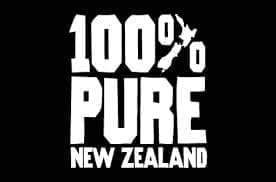Beef&Lamb New Zealand – the equivalent of Meat & Livestock Australia – has announced plans to close some of its overseas offices in order to concentrate on a new marketing strategy to differentiate the country’s products from those of international competitors.
Under the new direction, Beef&Lamb NZ will shut its permanent offices in the United Kingdom, South Korea and Japan in favour of ‘more flexible resources’ based in New Zealand. Regional offices in China and Brussels (European Union headquarters) will remain.
In an interesting move, responsibility for servicing and maintaining overseas markets for NZ beef and lamb will now be managed primarily through its meat exporters, using New Zealand red meat story collateral developed by B&LNZ.
A recent review of the NZ red meat industry’s marketing strategies agreed that exporters had ‘deep commercial relationships developed over many years’ and were well-placed to look after the industry’s marketing and market maintenance role.
Similar claims are occasionally made about Australia’s international red meat marketing effort, and whether the industry here would be better served by handing over more of the marketing function and budget to export processors – who actually sell the product on the international stage. Some Australian processors in the past have been openly critical of MLA marketing strategies overseas.
 B&LNZ chairman James Parsons released the new strategy last week, after about 12 months of consultation with NZ industry stakeholders.
B&LNZ chairman James Parsons released the new strategy last week, after about 12 months of consultation with NZ industry stakeholders.
He told the Otago Daily Times that the process marked a change in direction for the organisation.
The story of New Zealand farming and its farmers would be at the heart of B&LNZ’s new market development strategy, targeting new and emerging export markets, he said.
Mr Parsons said development of a NZ red meat sector story, which captured the culture, values and integrity long associated with New Zealand sheep and beef farmers, would be a way to differentiate his country from its competitors in the international marketplace.
The story, building on New Zealand’s farming systems with free-range, grassfed livestock – farmed to the highest standards of animal welfare – would be authenticated through a national quality assurance program, developed through the NZ Red Meat Profit Partnership.
The NZ red meat story and national assurance program will support meat processing companies’ own individual marketing strategies and would be a valuable resource for other partners, like meat importers, distributors, retailers and food service operators, and government agencies, Mr Parsons said.
“This marketing strategy marks a change in direction for B&L’s market development program,” he said.
The farmer-funded organisation had worked collaboratively with the red meat sector to develop a long-term sector strategy with clearly-defined roles for B&LNZ, meat exporters and marketers and industry stakeholders.
B&LNZ would continue to have a base in China and the organisation would still maintain its own strong, international network and continue to work internationally with partner organisations including meat processing companies, and other trade and industry bodies and government.
The new strategy does not affect the organisation’s office in Brussels, where the focus on maintaining trade access arrangements and international relationships with counterpart organisations in Europe was more important than ever, Mr Parsons said.
New Zealand enjoys an extremely large quota access for sheepmeat into the EU, and a smaller beef quota.
“Our established markets are still vitally important,” Mr Parsons told the Otago Daily Times.
The review involved intensive engagement with beef and sheep farmers to ensure their interests remained at the heart of the new approach, he said.
B&LNZ consulted widely over 12 months, running focus groups and workshops and the result was a ‘quite fundamental shift’ in approach, strongly supported by meat exporters and farmers themselves.

We have all been very surprised on receiving the recent trade news reporting on the closures of the three NZ Beef & Lamb offices ( London, Tokyo and Seoul).
According to the report the decision had been made by the new Board’s chairman for several weeks ago, after judging that those three markets have already matured, pointing out the aspect of demand and supply aspects, at the same time.
This is my personal view, however, this kind of important news should have been announced through its Japan representative. I strongly feel that it’s the quite normal way throughout the business world.
I would like to present new Board’s chairman for some Chinese proverb “People who drink water will not forget the hardship of the person who dug the well”
I personally concerned of the future of NZ beef and lamb in the Japanese market. Fortunately, I have a very valuable meat training and experience opportunity of the NZ meat industry in Christchurch, Belfast ( Canterbury Frozen Meat Export Co) in 1970 helped and supported by throughout warm and thoughtful CFM people also NZ meat industry.
I have a quite strong feeling on the NZ meat industry with always wishing the further success in every market.
Bully Khono, retired meat trader